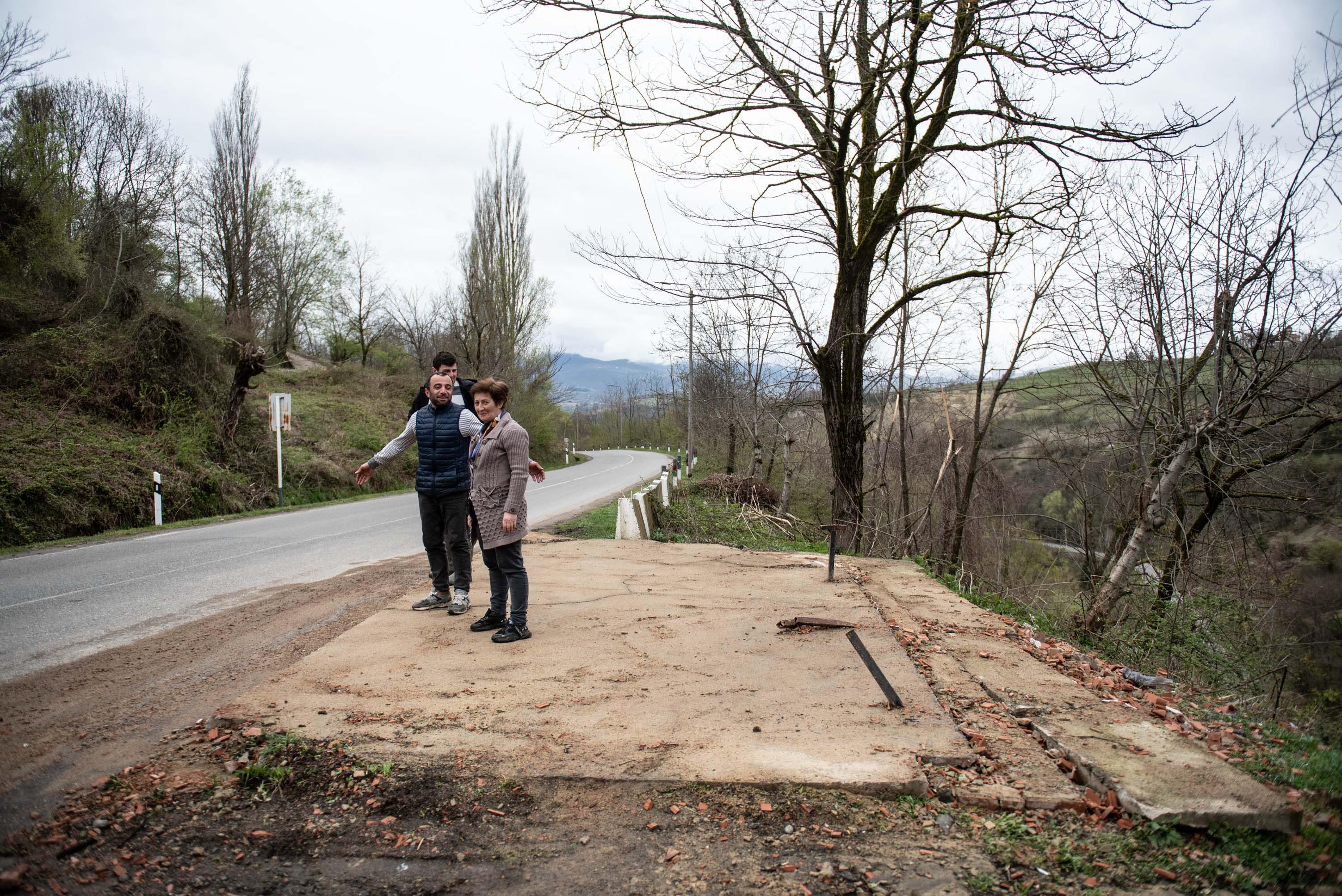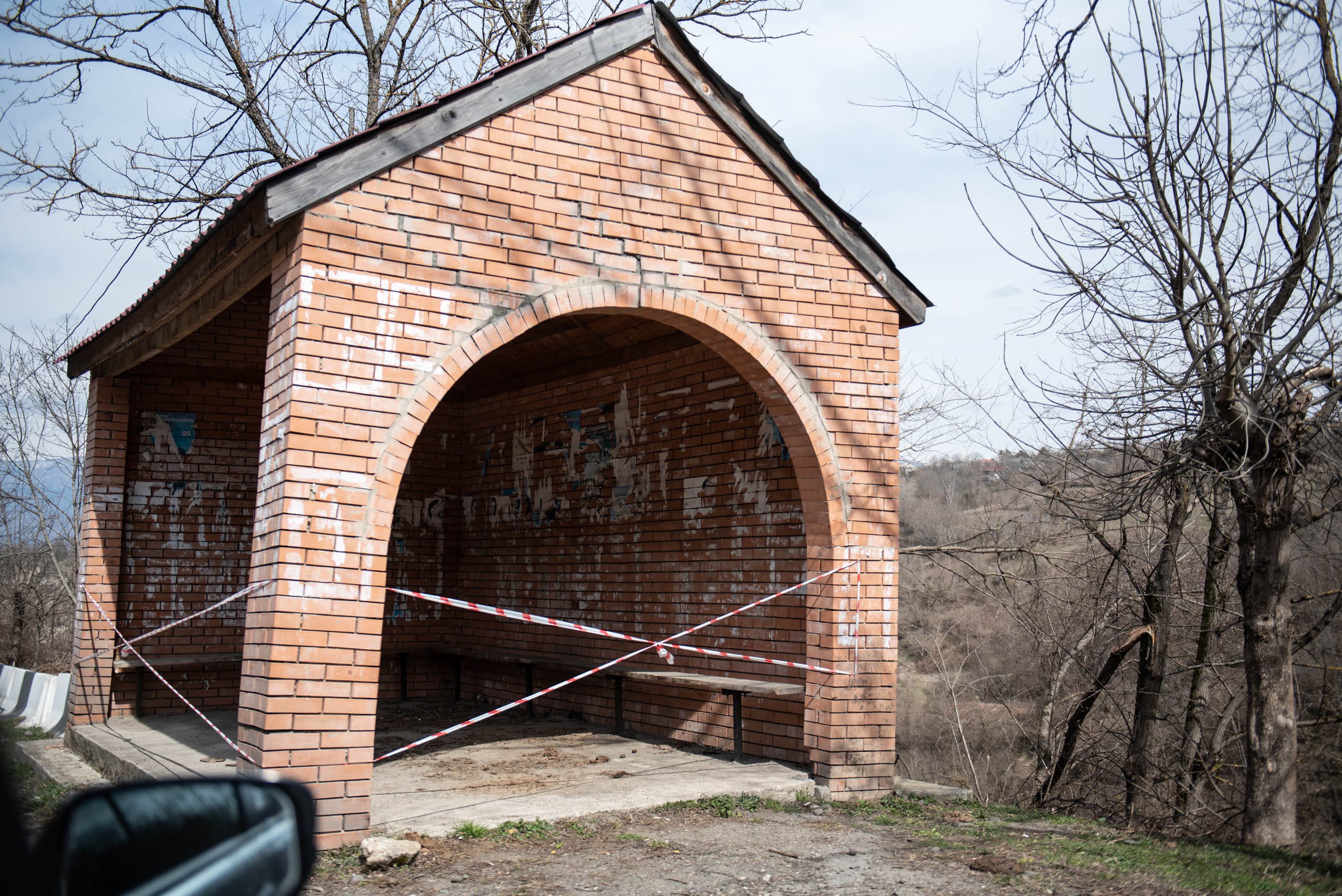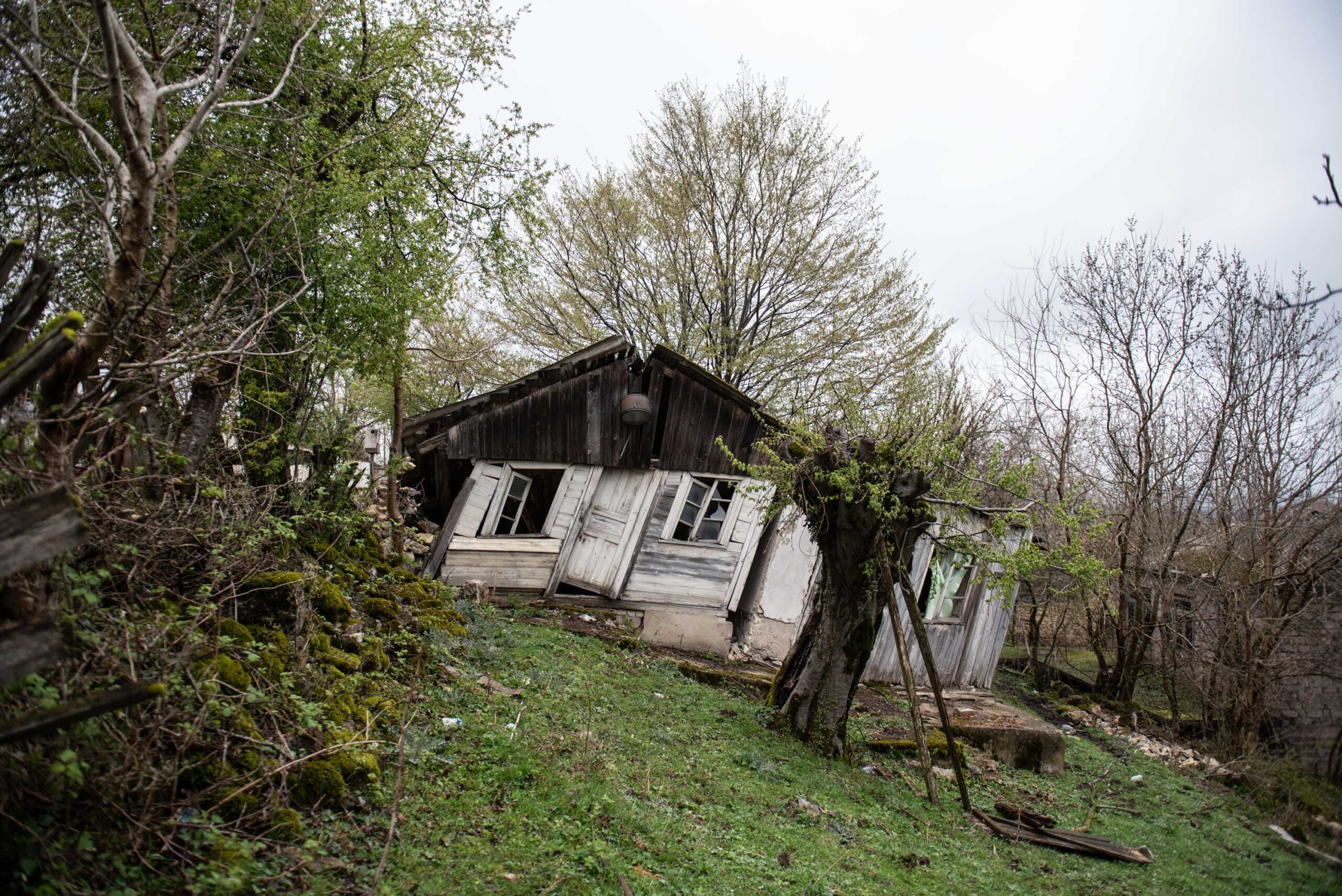
In Pictures | Living on the brink of collapse in Shukruti
With their houses cracking and collapsing around them, people in Shukruti are afraid that they will receive attention only when disaster strikes.
In Pictures | Living on the brink of collapse in Shukruti
 12 April 2024
12 April 2024

In 2021, Vera Kupatadze was one of eight people who spent a month on hunger strike, her lips sewn shut, to demand compensation from Georgian Manganese for damage to her property.
Today, Vera is one of dozens of Shukrutians who are demanding action and clarity from the company, which operates the mines in Chiatura, on the fate of their houses and the entire village.
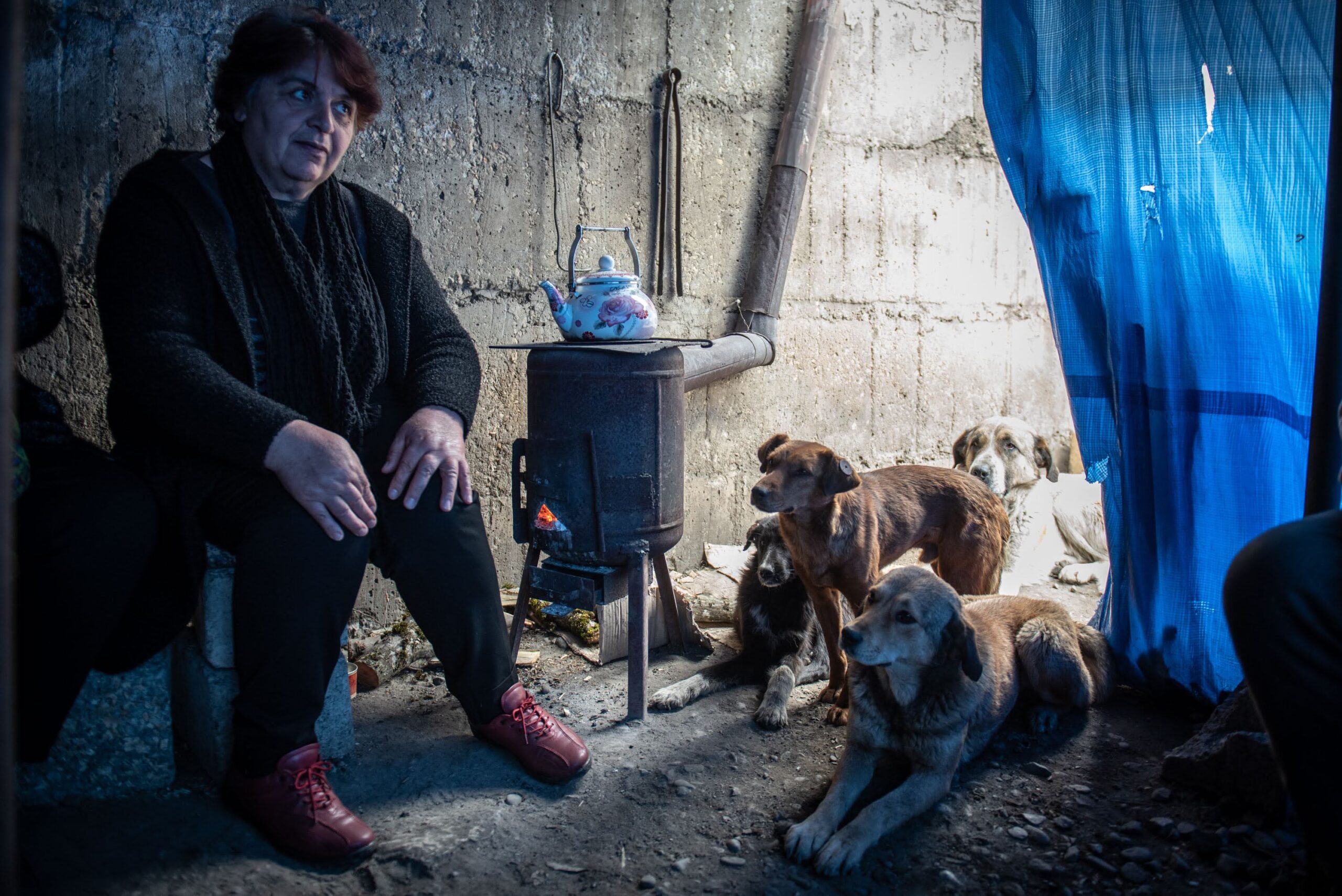
[Read more: Mine entrance blocked near Shukruti in renewed protest against Georgian Manganese]
During the 2021 protests, Vera was blackmailed with intimate recordings of a relative; an unknown caller threatened to release them if she did not end her protest.
But she continued her hunger strike until the protest’s end, when the families signed individual agreements with Georgian Manganese to be compensated. The agreements stated that the company would pay the damages of their homes as determined by the Samkharauli Forensic Bureau of Expertise.
But Vera says that since then, she has not accepted ‘a single lari’ from the company.
‘I could not touch the money they were offering, I couldn’t. This is all we own and what they were offering was the final amount’, she tells OC Media.
She says that state property evaluators who were meant to evaluate her property never turned up, and the company instead offered them a paltry amount of money based on their own evaluations. She adds that if there were any new damage to the property or if their home collapsed enirely, they would not receive any additional compensation.
‘I am scared at night. I swear, sometimes I wake up at night and my heart is shaking [from the fear] that my house may collapse this second,’ she says. She adds that her nephew, who works in a mine in Chiatura, tells her that in five years her house will probably not exist anymore.
‘These kids work inside those mines. He tells me not to sign anything that will promise something within five years, he says it’ll all be gone, and this house will be gone too.’
Vera says her family has no other place to live.
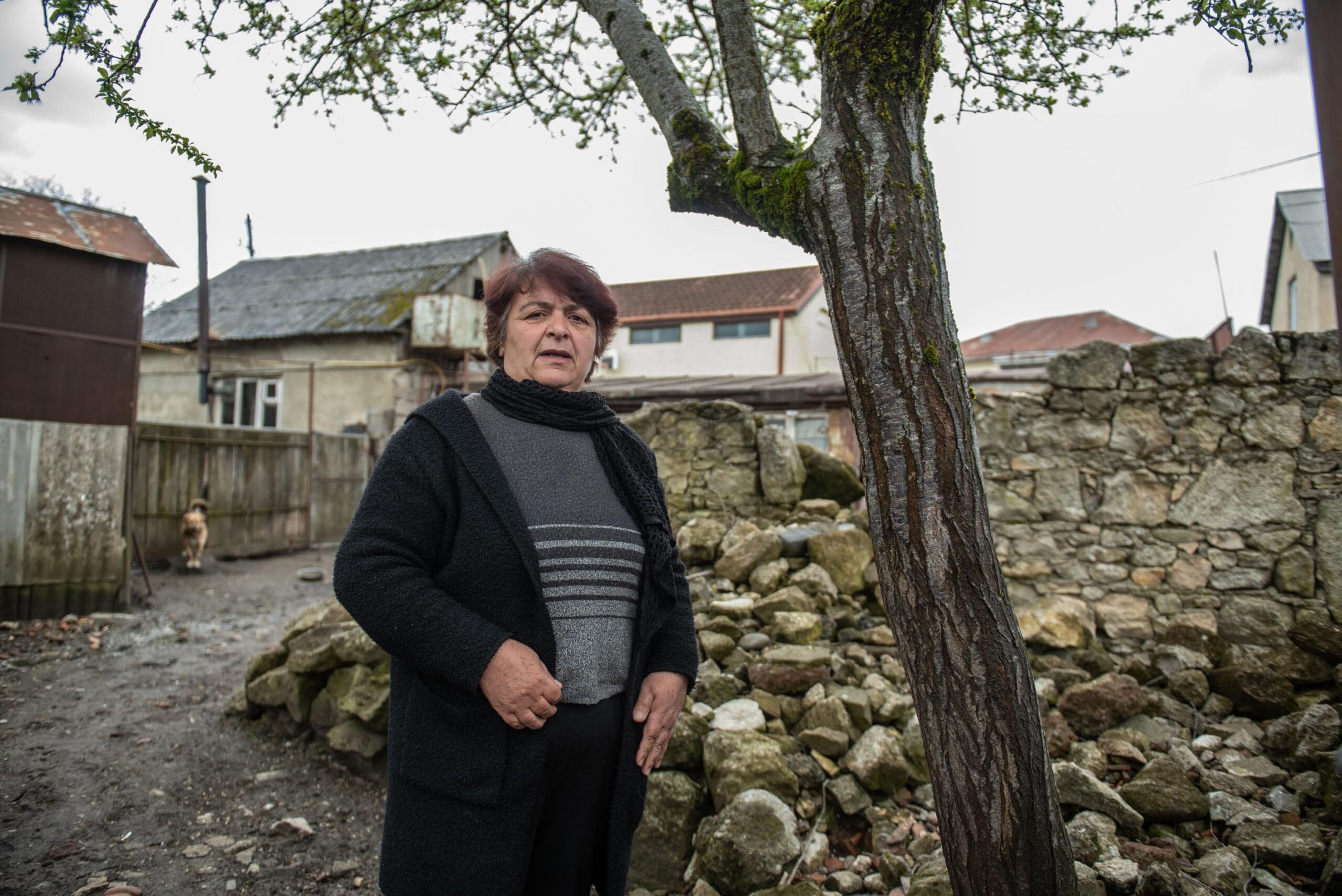
Shukruti lies next to the village of Itkhvisi, where around 20 houses collapsed on the same day in 2022. Itkhvisi is visible from Shukruti, and some of the people OC Media spoke to shared the fear that the same might happen to their village very soon.
Around a dozen houses have collapsed in Shukruti in recent years, but tens of families still remain in the village.
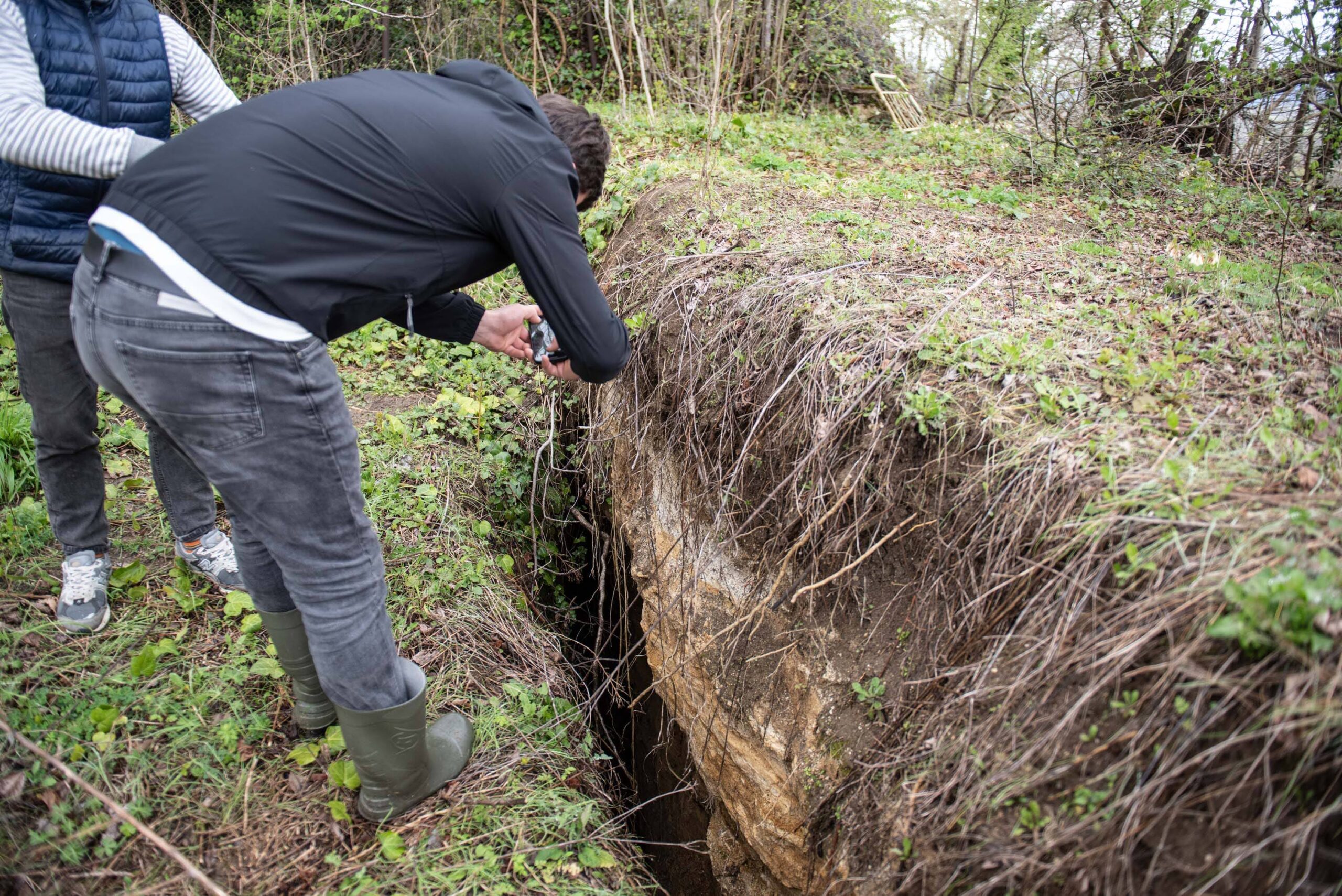
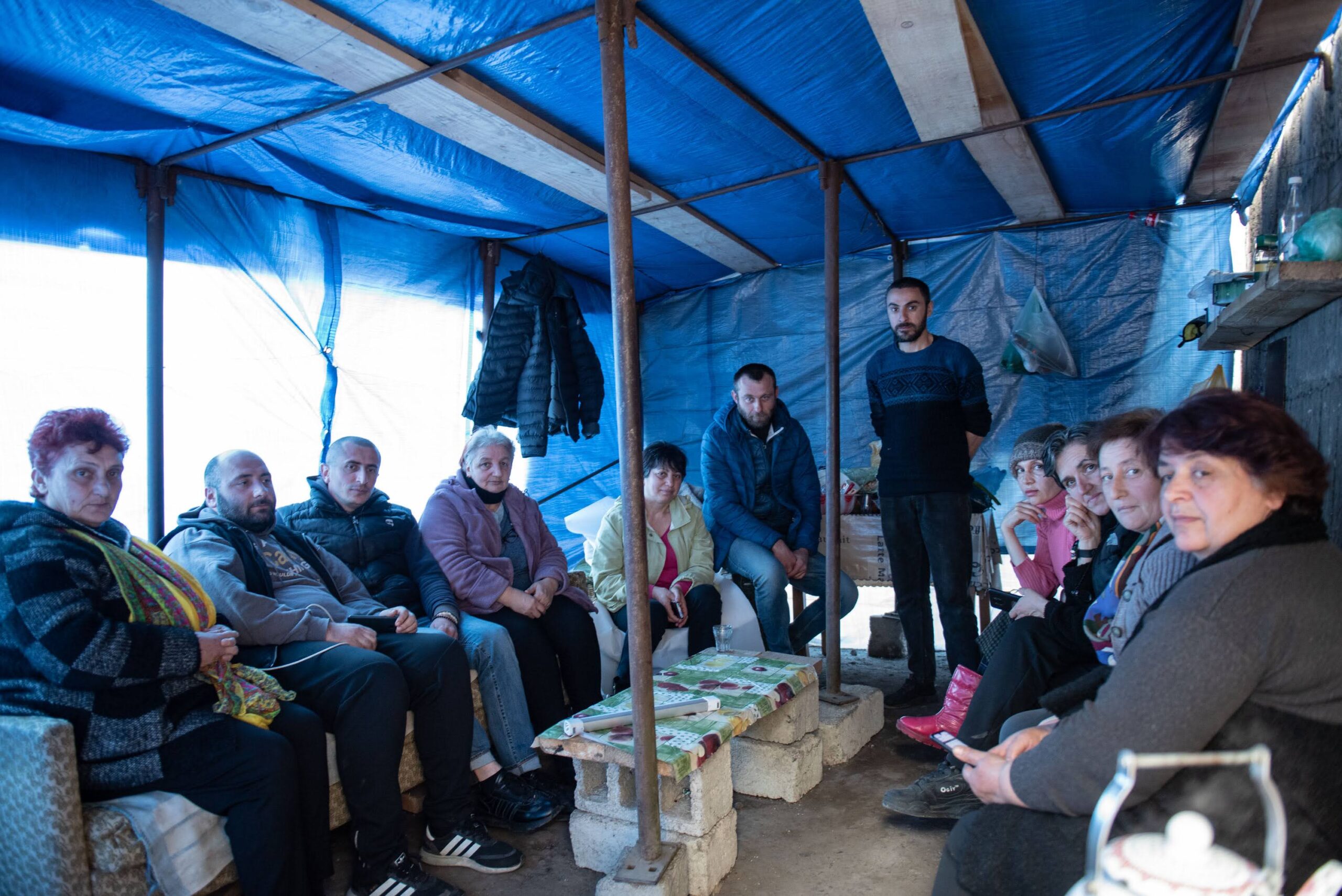
Ia Neparidze told OC Media that her house was built in 1993. About five years ago, cracks started to appear.
[Watch on OC Media: Video | Chiatura's sinking village]
She says that they try to repair the cracks, but new ones keep appearing.
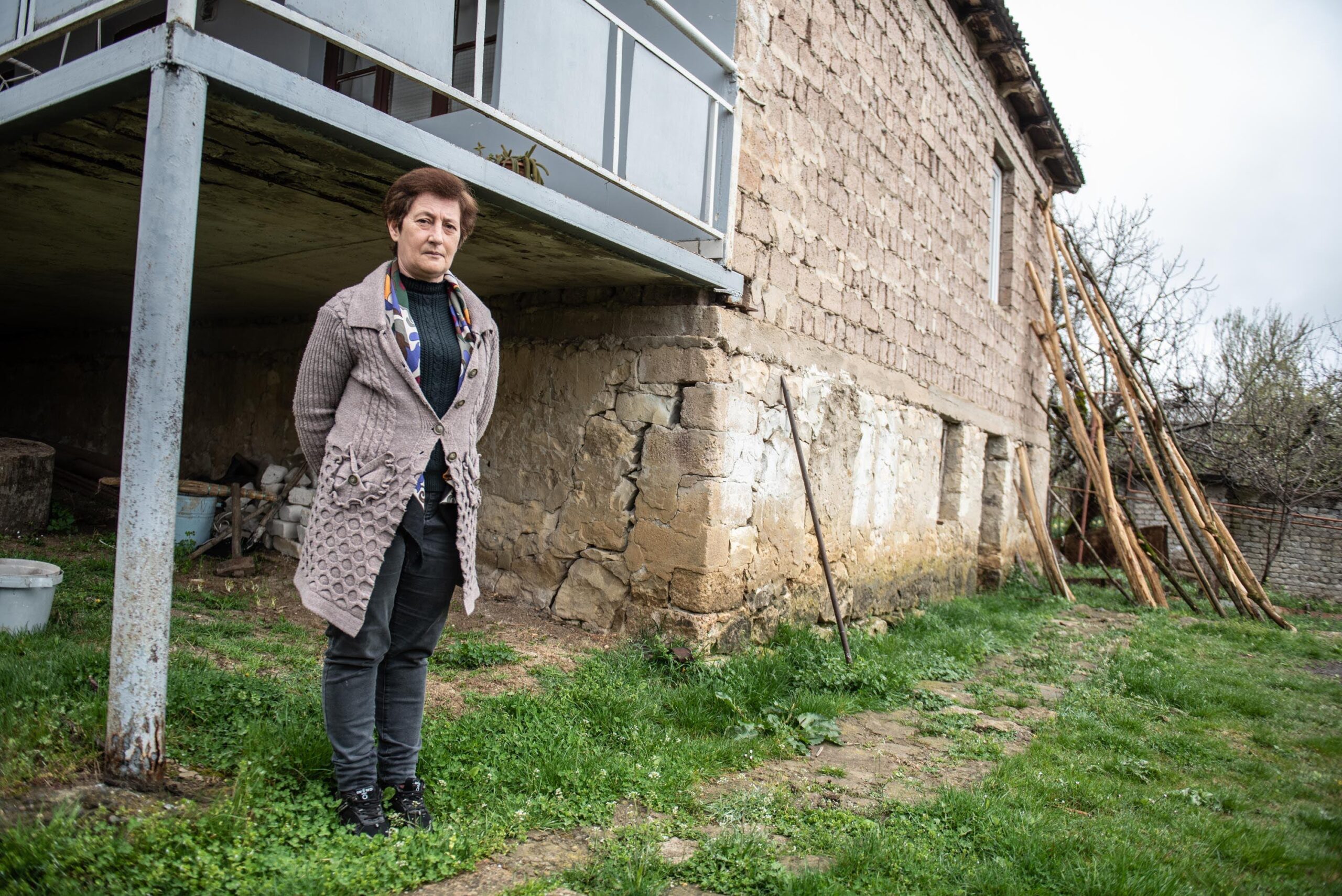
‘We look directly at Itkhvisi, you can see it from my house. I am terrified of when my house will also collapse. I hear cracks appearing at night’.
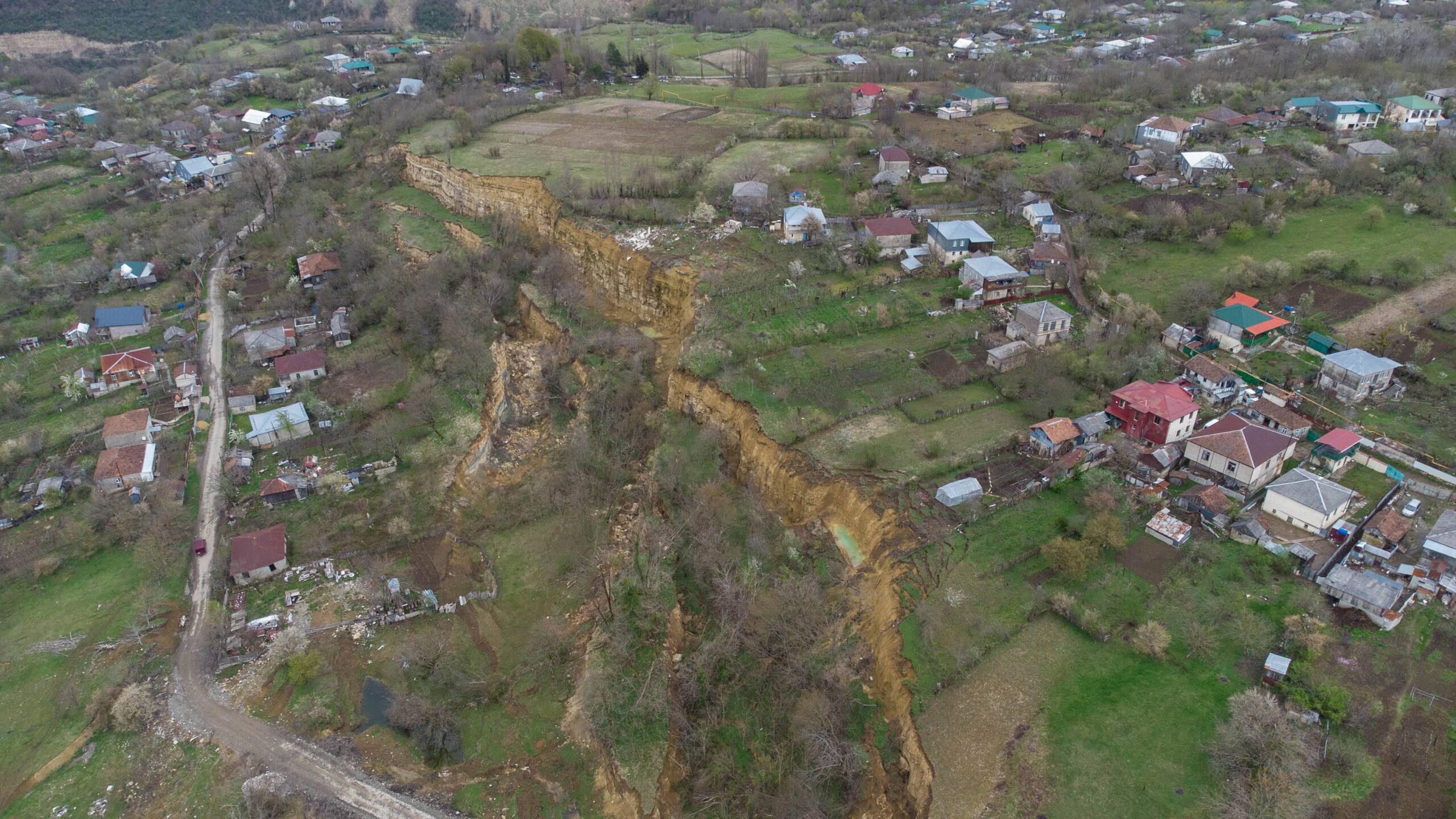
Asmati Neparidze, her next-door neighbour, says that her family has lived here for 47 years. The house they live in now was built in 1984 and, according to Asmati, stood strong until Georgian Manganese started mining again.
‘We have reached the edge of the abyss: no cattle, no vineyard, no orchard, I own nothing anymore. I used to have a lot of crops, we had so much produce. Now everything is destroyed, and the house is barely standing’, says Asmati.
She says neither the local nor the central government pays any attention to their problem.
‘They didn’t even consider us worthy of a single answer. We haven’t done anything wrong. We’re asking for what is ours, and that’s it. Why is [the company] destroying us without any compensation?’ asks Neparidze.
She says they don’t know what to do and repeats what others say: that they can’t sleep at night, and that the nights are the worst.
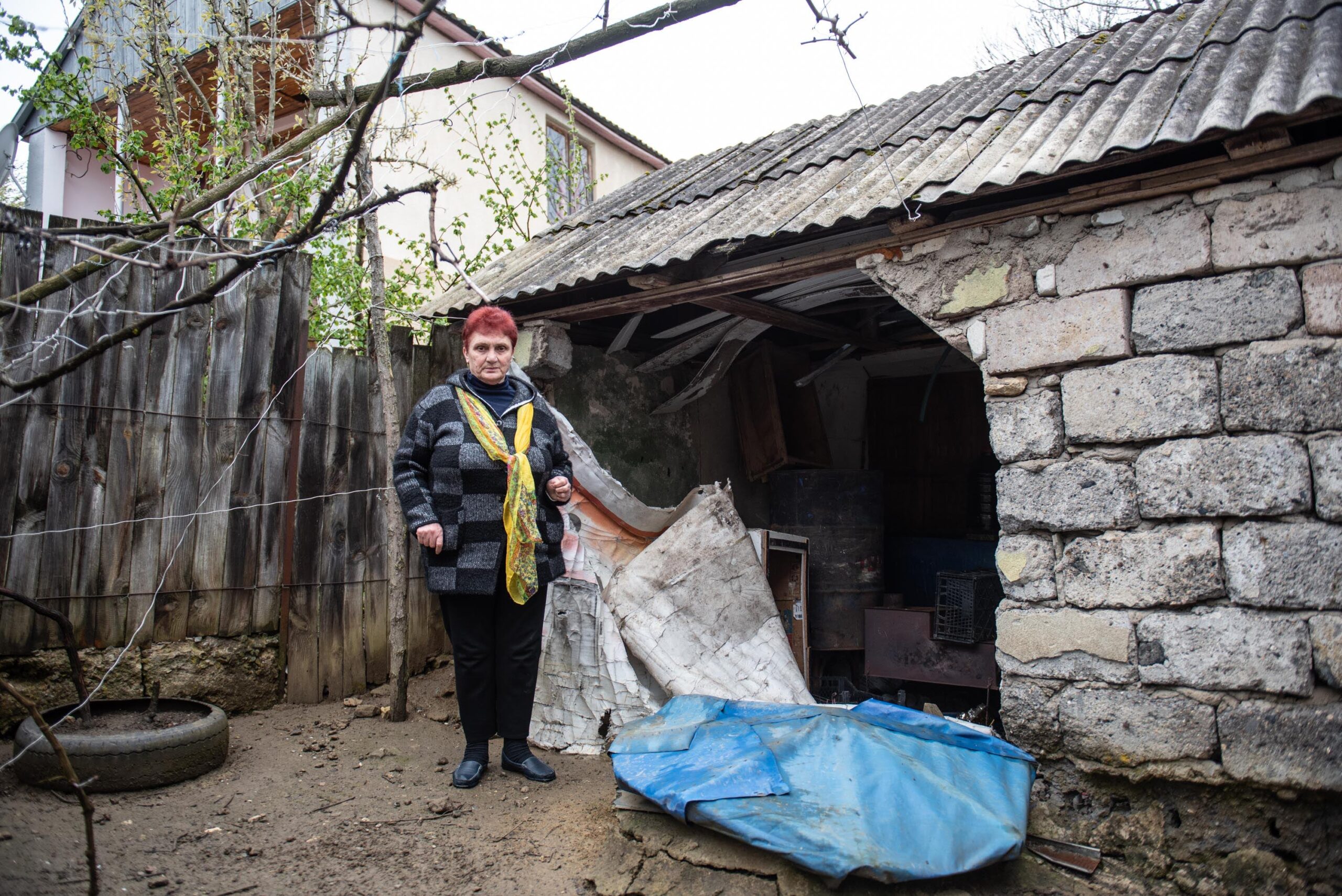
A few months ago, a long crack appeared in Shukruti, very similar in appearance to the crack that appeared in Itkhvisi in the months before the soil fully collapsed.
Nargiza Kapanadze’s house was built 12 years ago. She says cracks started appearing six years after the house was built, and the topography of her yard has changed completely. Cracks in the basement are dangerously wide, and she lives very close to the area where the new crack appeared in the village.
‘I am afraid, my child, but I cannot go anywhere else in this lifetime. I will live and die where my husband left me. I need to be here, in my house’, says Nargiza.
Nargiza says her son begs her to leave, and often argues with her because she wants to fix the fence, fix the cracks, and repair stairs that are now deformed.
‘ “It is nonsense, woman”, he tells me. “It is nonsense to fix anything here, it’s over”, he says, and eventually, I stopped resisting.’
Nargiza said that a few weeks ago, she was woken up by a loud noise, and found that a new crack had appeared across her entire bedroom.
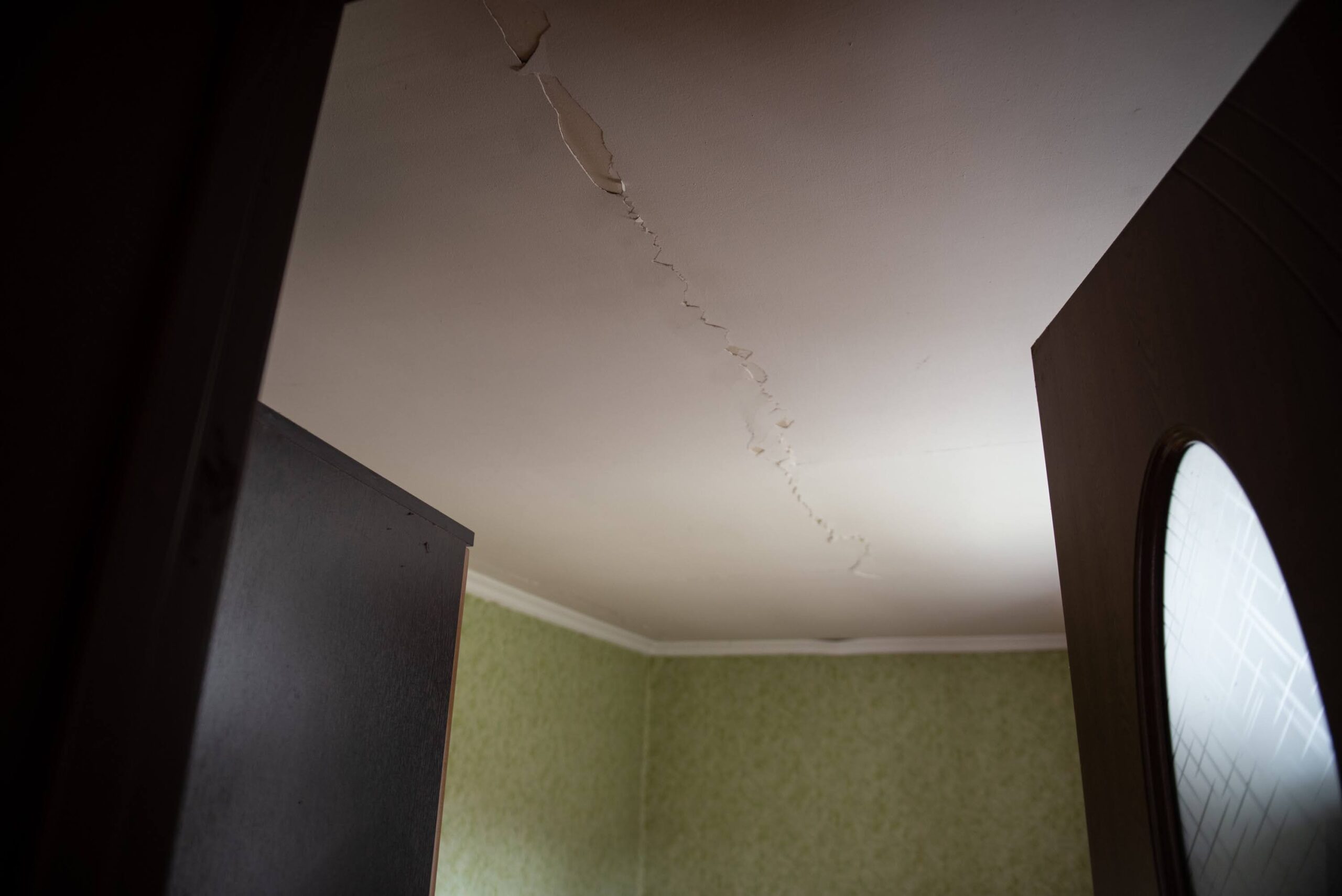
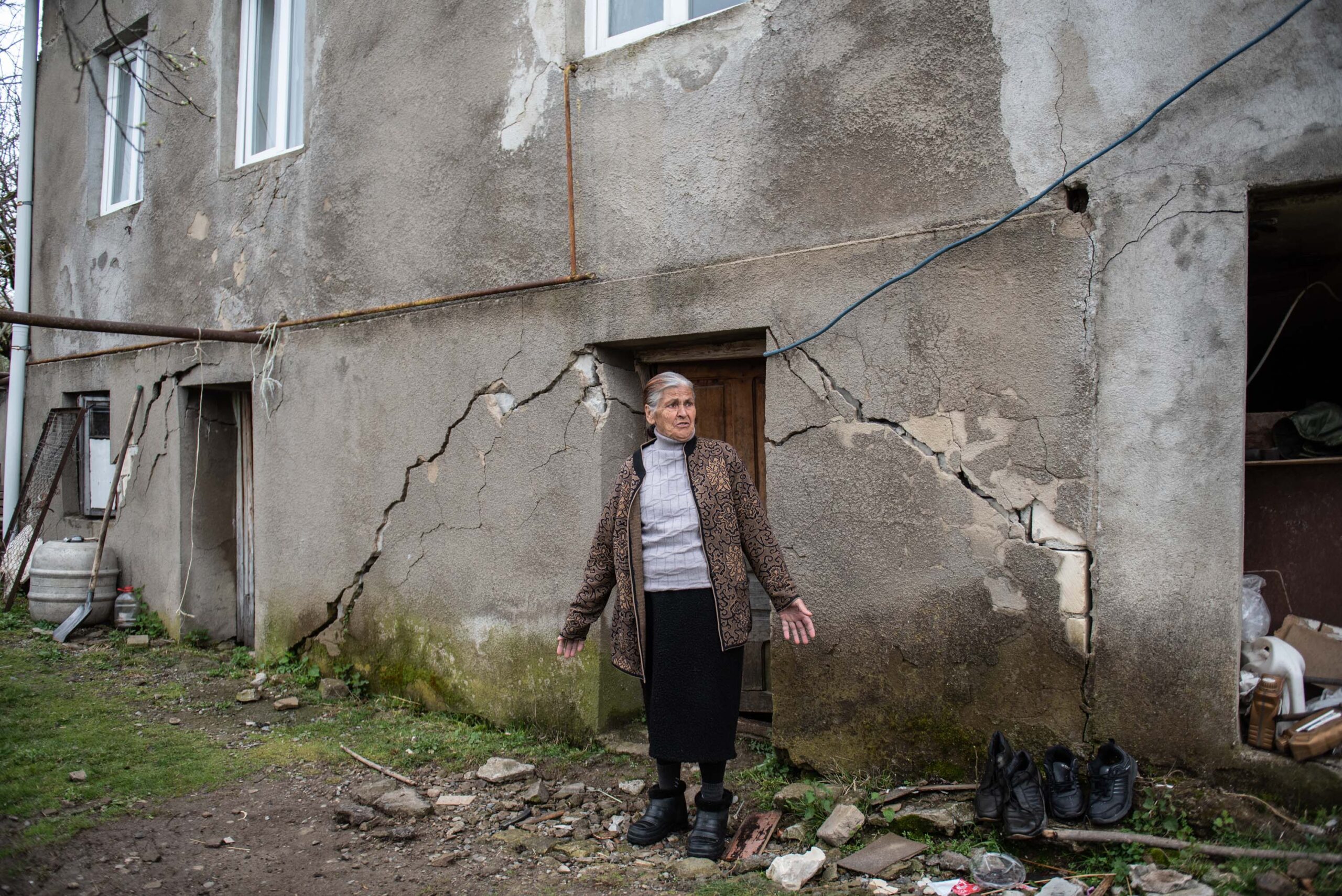
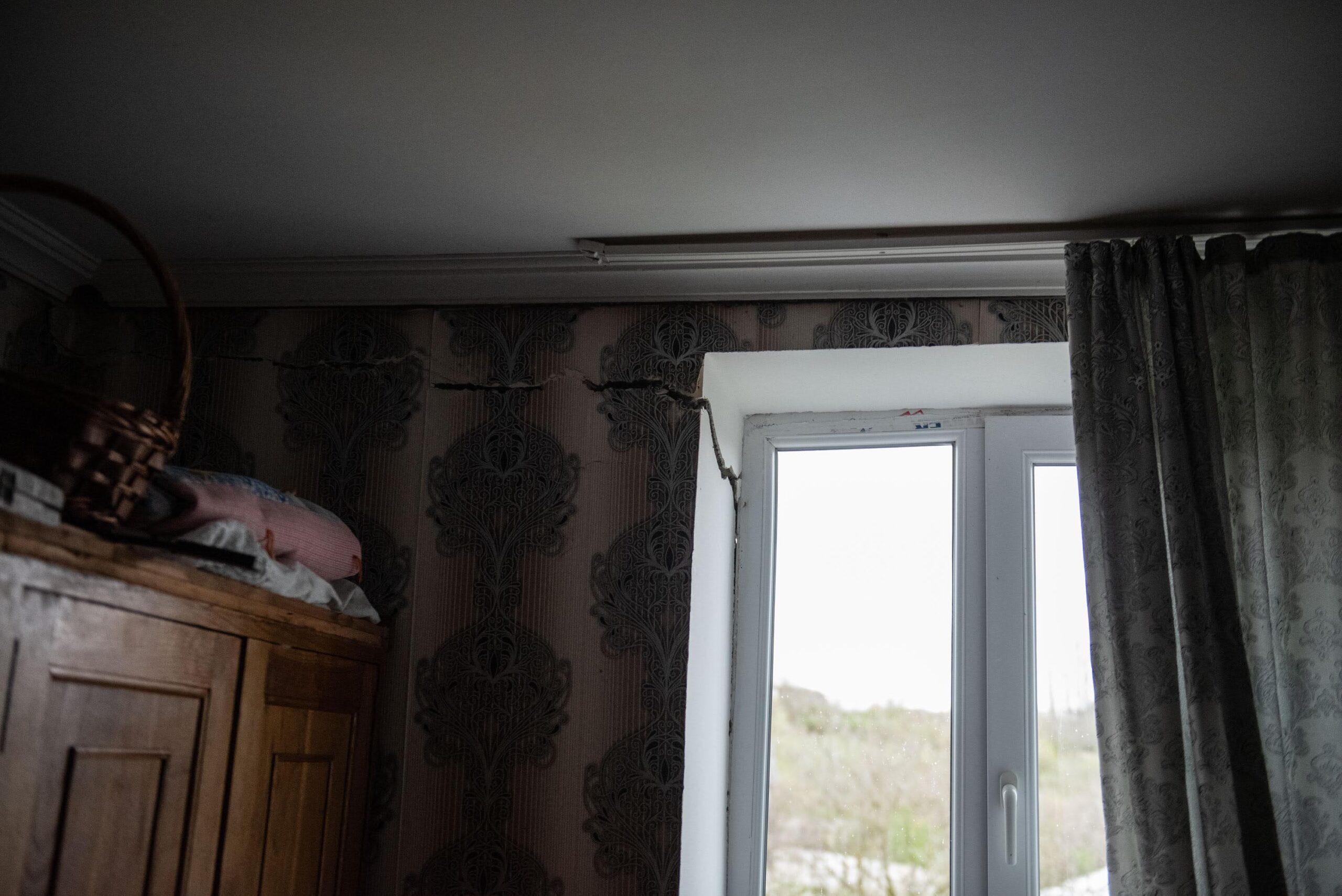
Giorgi Bitsadze, who also works in the mines, tells us that the large new crack in Shukruti connects with the largest crack in Itkhvisi. He is convinced that in a few years, both villages will be uninhabitable.
‘The reason why we fight is so we don’t become refugees. We need attention, we need the company to take responsibility for this. This process is irreversible’, says Bitsadze.
He says that the village survived because this winter was not harsh, but if there are heavy rains, some houses may not make it.
‘Crops don’t grow anymore. They need rain every day, but as the soil cannot hold water, plants dry out, fruits dry out. We are powerless’, he says. ‘This is all true, I am not making anything up. Look around: there’s no need to exaggerate’.
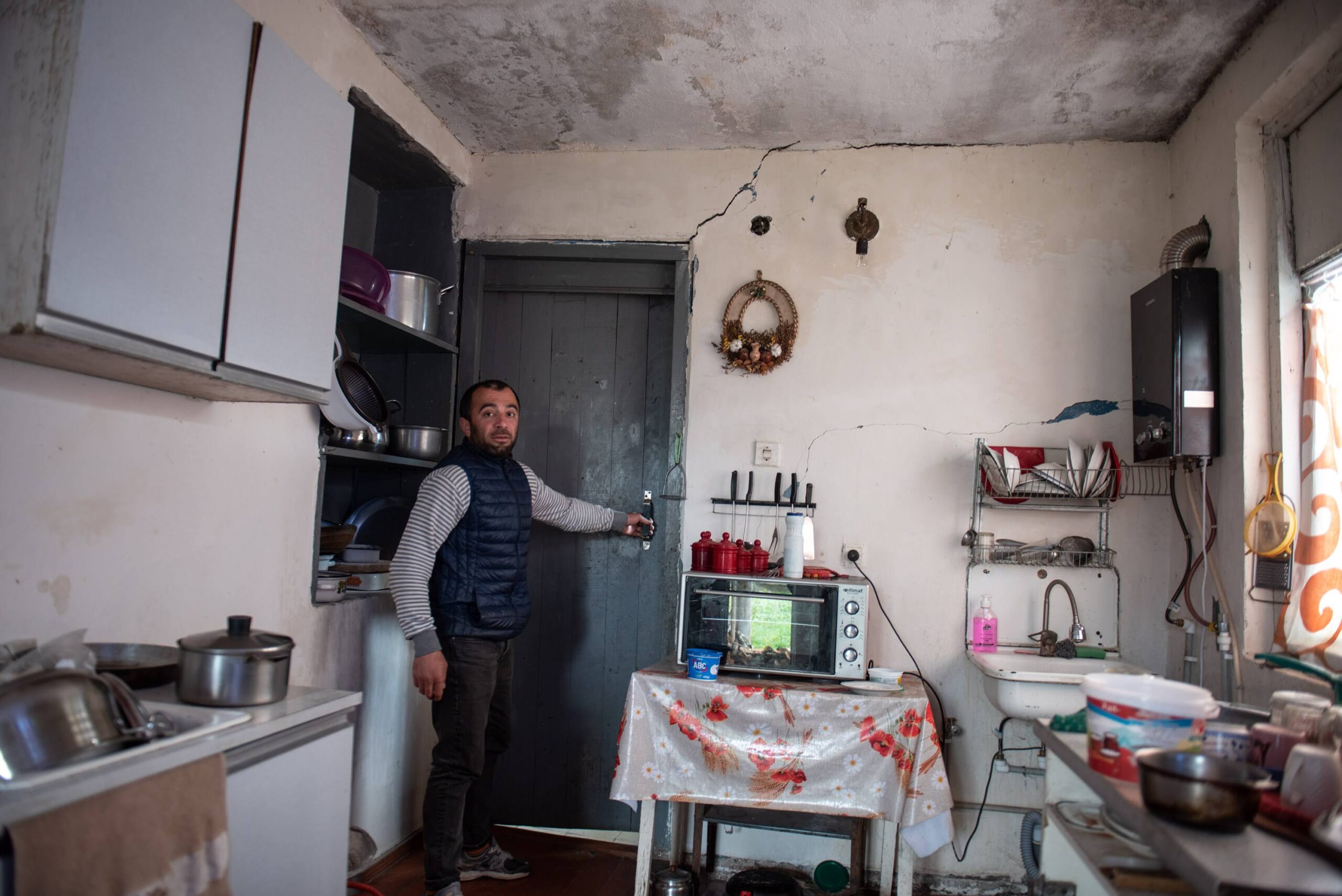
Tamuna Gureashvili protested with Vera Kupatadze in 2021. She has rejoined the protest, afraid that her house might also soon collapse.
‘I remember hearing explosions, I’d count 10–15 explosions a day. When I brought it up with the company, they denied it, and said the sounds were coming from “another mine”, which is impossible’, says Tamuna.
Her husband works inside the Shukruti mine. They also think that it will soon be impossible to continue living in the village.
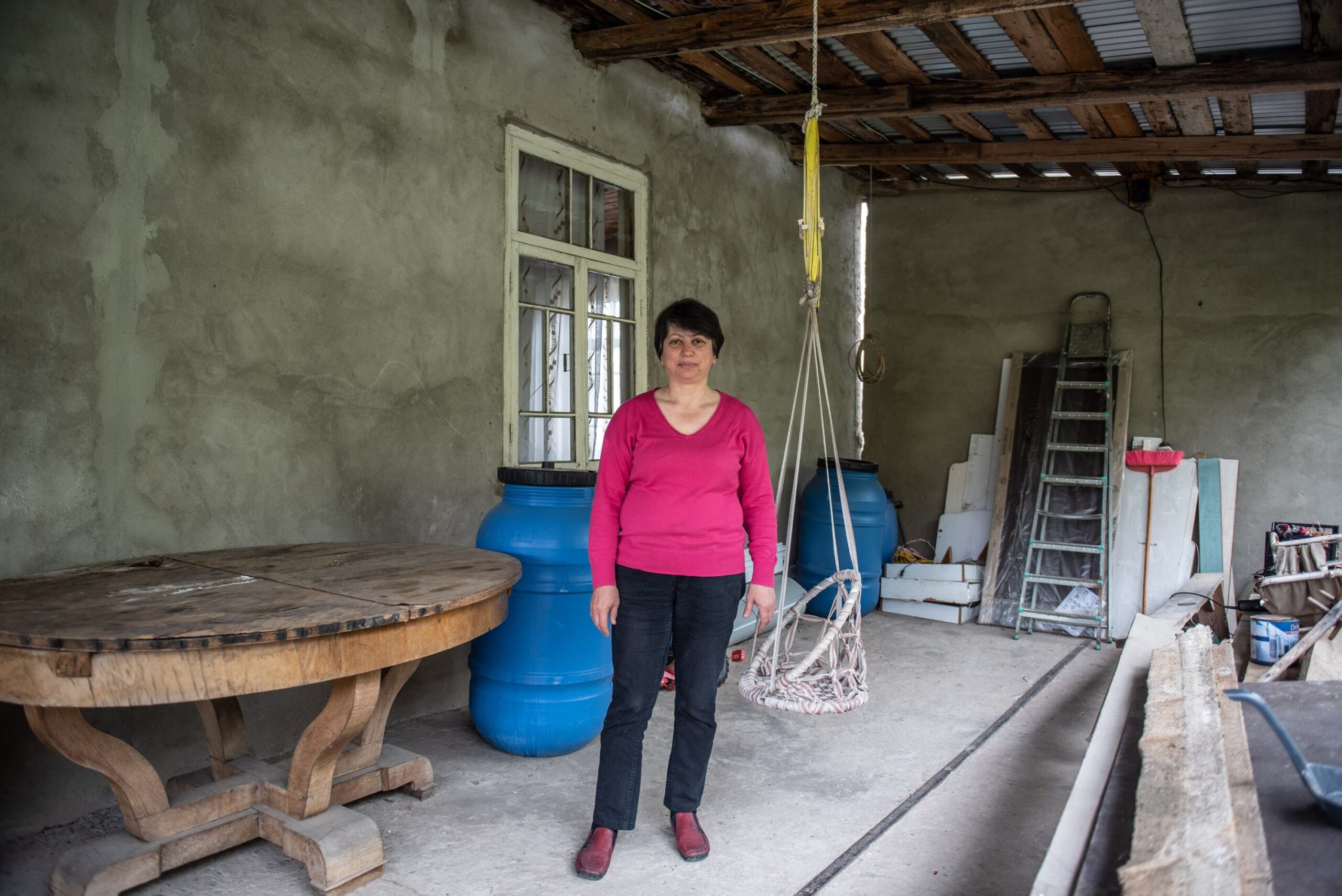
The villagers of Shukruti want guarantees from the company that if or when their houses collapse they will be given adequate alternative living spaces, or fair and reasonable compensation equivalent to the value of their current property. While they have been pushing the company to bring in external evaluators and offer such guarantees, they have so far had no positive responses from either Georgian Manganese or the government.
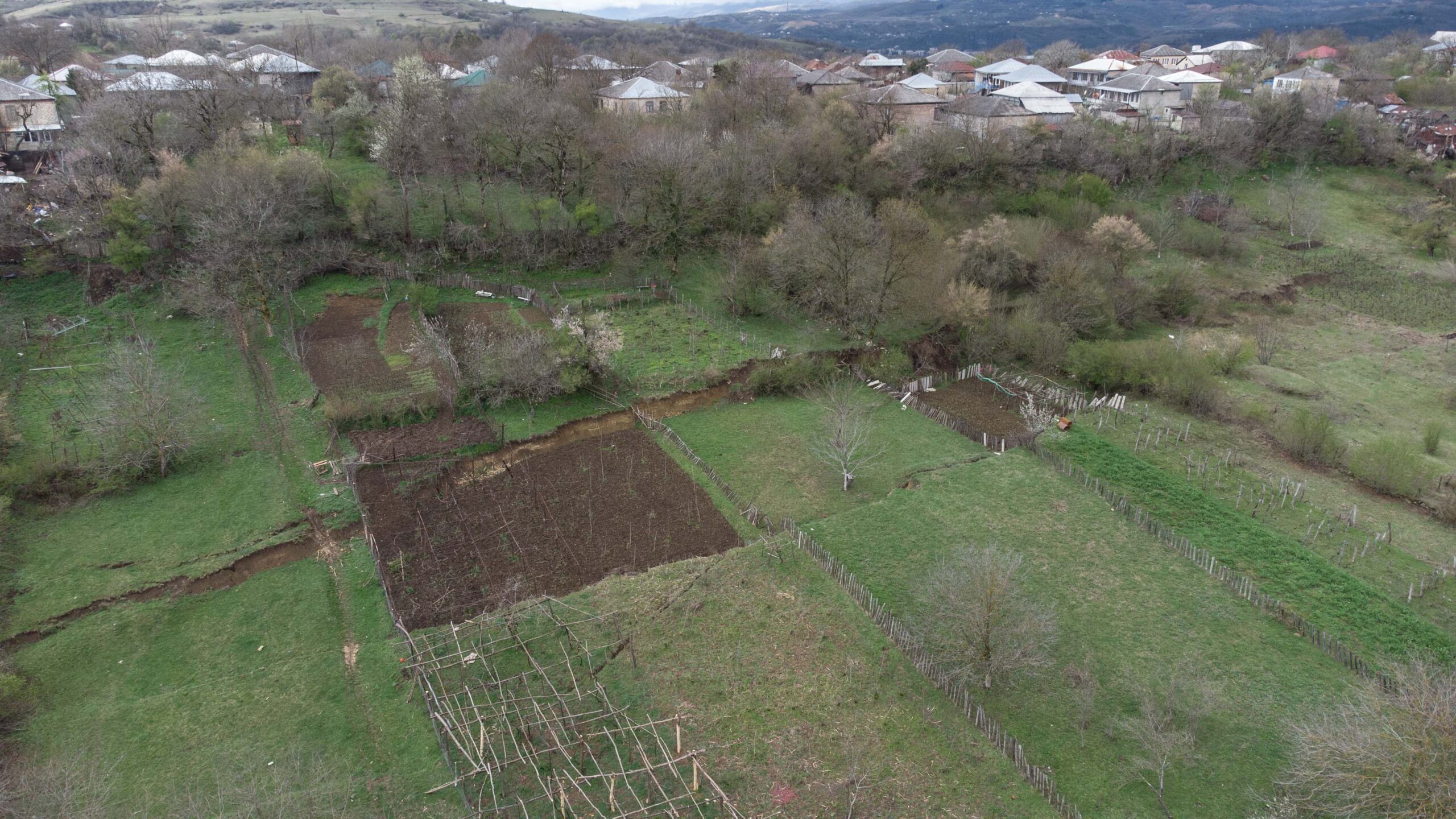
‘We are becoming refugees’, says Bitsadze. ‘We live in these houses right now. So what do we do? Die here? Become victims of a huge tragedy? Isn’t it possible for someone to pay attention to us while we are still alive?’




